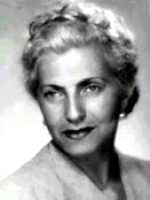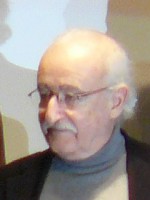The Shop on Main Street is a tchecoslovaque film of genre Drama directed by Ján Kadár released in USA on 24 january 1966 with Ida Kamińska
The Shop on Main Street (1965)
Obchod na korze
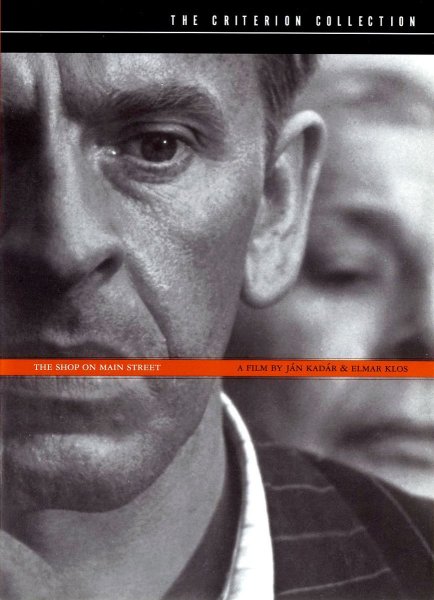
If you like this film, let us know!
The Shop on Main Street (Czech/Slovak: Obchod na korze; in the UK A Shop on the High Street) is a 1965 Czechoslovak film about the Aryanization programme during World War II in the Slovak State.
The film was written Ladislav Grosman and directed by Ján Kadár and Elmar Klos. It was funded by Czechoslovakia's central authorities (as were all films under the Communist regime), produced at the Barrandov Film Studio in Prague, and filmed with a Slovak cast on location at the town of Sabinov in north-eastern Slovakia and on the Barrandov sound stage. It stars Jozef Kroner as carpenter Tóno Brtko and Polish actress Ida Kamińska as the Jewish widow Rozália Lautmannová.
The film won the 1965 Academy Award for Best Foreign Language Film, and Kamińska was nominated in 1966 for Best Actress in a Leading Role. The film was also entered into the 1965 Cannes Film Festival.
Synopsis
During World War II, a mild-mannered Slovak carpenter Anton "Tóno" Brtko (Jozef Kroner) is offered the chance to take over the sewing notions store of an old, near-deaf Jewish woman Rozália Lautmannová (Ida Kamińska) as a part of the enactment of an Aryanization regulation in the town. As Tóno attempts to explain to Mrs. Lautmannová, who is oblivious of the world outside and generally confused, that he has come to be her supervisor and owner of the store, Imrich Kuchár (Martin Hollý, Sr.), a Slovak opponent of Aryanization, steps in and reveals to Brtko that the business itself is less than profitable, as Lautmannová herself relies on donations. The Jewish community then offers the amiable Brtko a weekly payment if he does not give up the store, which would otherwise be given to a new, possibly ruthless Aryanizer. Tóno accepts and lets Mrs. Lautmannová believe he is her nephew who has come to help in the store. Their relationship grows, until the authorities round up the town's entire Jewish population for transport, and Tóno finds himself conflicted as to whether he should turn in the senile Mrs. Lautmannová, or hide her. When the woman finally becomes aware of the "pogrom" all around her, she panics, and in attempting to silence her, Tóno accidentally kills her. The realization devastates him, and he hangs himself.Actors
Comments
Leave comment :
Suggestions of similar film to The Shop on Main Street
There are 3 films with the same actors, 5 films with the same director, 61585 with the same cinematographic genres (including 3165 with exactly the same 2 genres than The Shop on Main Street), 10121 films with the same themes (including 373 films with the same 3 themes than The Shop on Main Street), to have finally 70 suggestions of similar films.If you liked The Shop on Main Street, you will probably like those similar films :
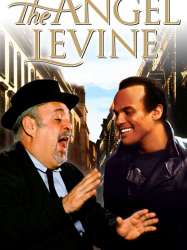
The Angel Levine (1970)
, 1h46Directed by Ján Kadár
Origin USA
Genres Drama
Themes Films about religion, Films about Jews and Judaism
Actors Zero Mostel, Harry Belafonte, Ida Kamińska, Milo O'Shea, Gloria Foster, Eli Wallach
Rating60%





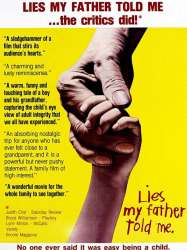
Lies My Father Told Me (1975)
, 1h42Directed by Ján Kadár
Origin Canada
Genres Drama
Themes Films about religion, Films about Jews and Judaism
Actors Yossi Yadin, Marilyn Lightstone, Ted Allan, Bertrand Gagnon, Guy L'Écuyer, Diana Leblanc
Rating66%





The story tells of a six-year-old boy who would travel with his grandfather on an old horse-drawn cart through the alleyways in a Jewish ghetto of Montreal in the 1920s. The two would call out to residents asking to collect their old junk (a rag-and-bone man). The boy's grandfather was religious but his father was not. Eventually the grandfather dies, as does his horse Ferdeleh, leaving the boy feeling bitter toward his secular father.

The Hiding Place (1975)
, 2h30Directed by James F. Collier
Origin USA
Genres Drama, War, Historical
Themes Films about religion, Political films, Films about Jews and Judaism
Actors Julie Harris, Eileen Heckart, Arthur O'Connell, David de Keyser, Nigel Hawthorne, Cyril Shaps
Rating73%





As the Nazis invade the Netherlands in 1940, Corrie and her family allow Jews to hide in a part of their home that is specially remodeled by members of the Dutch resistance. However, the Nazis eventually discover that Corrie and her family are hiding Jews, and on February 28, 1944, the entire family and their friends are arrested after their betrayal by a Dutch collaborator. The hidden Jews are never found by authorities. Corrie's father, Casper, dies before he reaches the concentration camp, and Corrie worries that she will never see her home again. The Nazis send Corrie and her sister, Betsie, to the Ravensbrück concentration camp in Germany for hiding Jews in their home. At the concentration camp, Betsie encourages Corrie to remain hopeful that God will rescue them from the brutalities they experience. With little food and constant work, the women suffer constantly, and Corrie's sister Betsie (Julie Harris), dies. Ultimately, Corrie (Jeanette Clift George) leaves the camp in December, 1944 through what is discovered years later to have been a clerical error, as everyone else in her group of prisoners was gassed the following month (January, 1945). Her life after this ordeal was dedicated to showing that Jesus' love is greater than the deepest pit into which humankind finds itself.

Au Revoir les Enfants (1987)
, 1h43Directed by Louis Malle
Origin France
Genres Drama, War
Themes French war films, Films about children, Films about religion, Scoutisme, Political films, Films about Jews and Judaism, Histoire de France, L'Occupation allemande en France, La condition juive en France sous l'Occupation allemande
Actors Raphaël Fejtö, Gaspard Manesse, Philippe Morier-Genoud, François Berléand, Francine Racette, Stanislas Carré de Malberg
Rating79%





During the winter of 1943-44, Julien Quentin, a student at a Carmelite boarding school in occupied France, is returning to school from vacation. He acts tough to the students at the school, but he is actually a pampered mother's boy who still wets his bed. Saddened to be returning to the tedium of boarding school, Julien's classes seem uneventful until Père Jean, the headmaster, introduces three new pupils. One of them, Jean Bonnet, is the same age as Julien. Like the other students, Julien at first despises Bonnet, a socially awkward boy with a talent for arithmetic and playing the piano.

Escape from Sobibor (1987)
, 2h23Directed by Jack Gold
Origin United-kingdom
Genres Drama, War, Thriller, Historical
Themes Prison films, Films about religion, Political films, Films about Jews and Judaism
Actors Alan Arkin, Joanna Pacuła, Rutger Hauer, Hartmut Becker, Jack Shepherd, Wolfgang Bathke
Rating73%





The film begins with a new trainload of Polish Jews arriving for processing at Sobibor. The German Commandant gives them a welcoming speech, assuring the new arrivals that the place is a work camp. Other SS officers move along the assembled lines of prisoners, selecting a small number who have trade skills (such as goldsmiths, seamstresses, shoemakers, and tailors). The remaining prisoners are sent away to a different part of the camp from which a pillar of smoke rises day and night. It is some time before the new prisoners realize Sobibor is a death camp, all of the other Jews are exterminated in gas chambers, and their corpses are cremated in large ovens. The small number of prisoners who are kept alive in the other part of the camp are charged with sorting the belongings taken from those who are murdered and then repairing the shoes, recycling the clothing, and melting down any silver or gold to make jewelry for the SS officers. Despite their usefulness, these surviving prisoners' existence is precarious, and beatings and executions can occur at any time.

Fateless (2005)
, 2h14Directed by Lajos Koltai
Origin Hongrie
Genres Drama, War
Themes Films about religion, Political films, Films about Jews and Judaism
Actors Daniel Craig, Piroska Molnár
Rating69%





Un jeune garçon fait l'expérience de la guerre dans ses aspects les plus tragiques (port de l'étoile jaune, rafles, déportation, travaux forcés, dégradations en tout genres, etc.), et dans le même temps, il fait l'apprentissage de la vie et passe de l'enfance au monde adulte (coming of age).
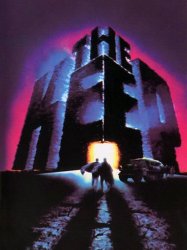
The Keep (1983)
, 1h36Directed by Michael Mann
Origin USA
Genres Drama, War, Fantastic, Fantasy, Horror
Themes Films about religion, Vampires in film, Political films, Films about Jews and Judaism, Golem
Actors Scott Glenn, Gabriel Byrne, Jürgen Prochnow, Ian McKellen, Robert Prosky, Alberta Watson
Rating57%





Within an uninhabited citadel (the “Keep” of the title) in World War II-era Romania lies entrapped a dangerous entity named Radu Molasar. The inner walls of the citadel contain 108 T-shaped icons, supposedly made of nickel. When the German Army under the command of Capt. Klaus Woermann occupies the castle to control the Dinu Mountain Pass following the commencement of Operation Barbarossa, Molasar is unleashed by a pair of looting soldiers who identify one glowing icon as being made of silver. In the ensuing days, Molasar kills several soldiers. A detachment of Einsatzkommandos under the command of sadistic SD Sturmbannführer Eric Kaempffer then arrives to deal with what is thought to be partisan activity, executing villagers as collective punishment.
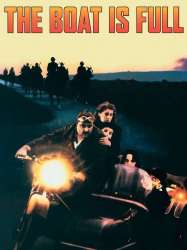
The Boat Is Full (1981)
, 1h41Directed by Markus Imhoof
Origin Suisse
Genres Drama, War, Historical
Themes Films about religion, Political films, Films about Jews and Judaism
Actors Tina Engel, Curt Bois, Mathias Gnädinger
Rating70%






Charlotte (1981)
Directed by Frans Weisz
Genres Drama, War
Themes Films about religion, Political films, Films about Jews and Judaism
Actors Elisabeth Trissenaar, Brigitte Horney, Max Croiset, Peter Capell, Derek Jacobi, Peter Faber
Rating70%






The Wannsee Conference (1987)
, 1h25Genres Drama, War, Historical
Themes Films about religion, Political films, Films about Jews and Judaism
Actors Dietrich Mattausch, Robert Atzorn, Jochen Busse
Rating76%





Le téléfilm décrit en temps réel (sur 90 minutes), la réunion à Wannsee, des cadres et responsables du régime nazi, chargés de planifier sous la direction de Reinhard Heydrich la solution finale qui doit aboutir à l'extermination des Juifs d'Europe. Les dialogues et le déroulement des débats s'appuient sur les comptes rendus détaillés de la conférence, retranscrits par Adolf Eichmann et sur son témoignage lors de son procès en Israël.
 Connection
Connection
